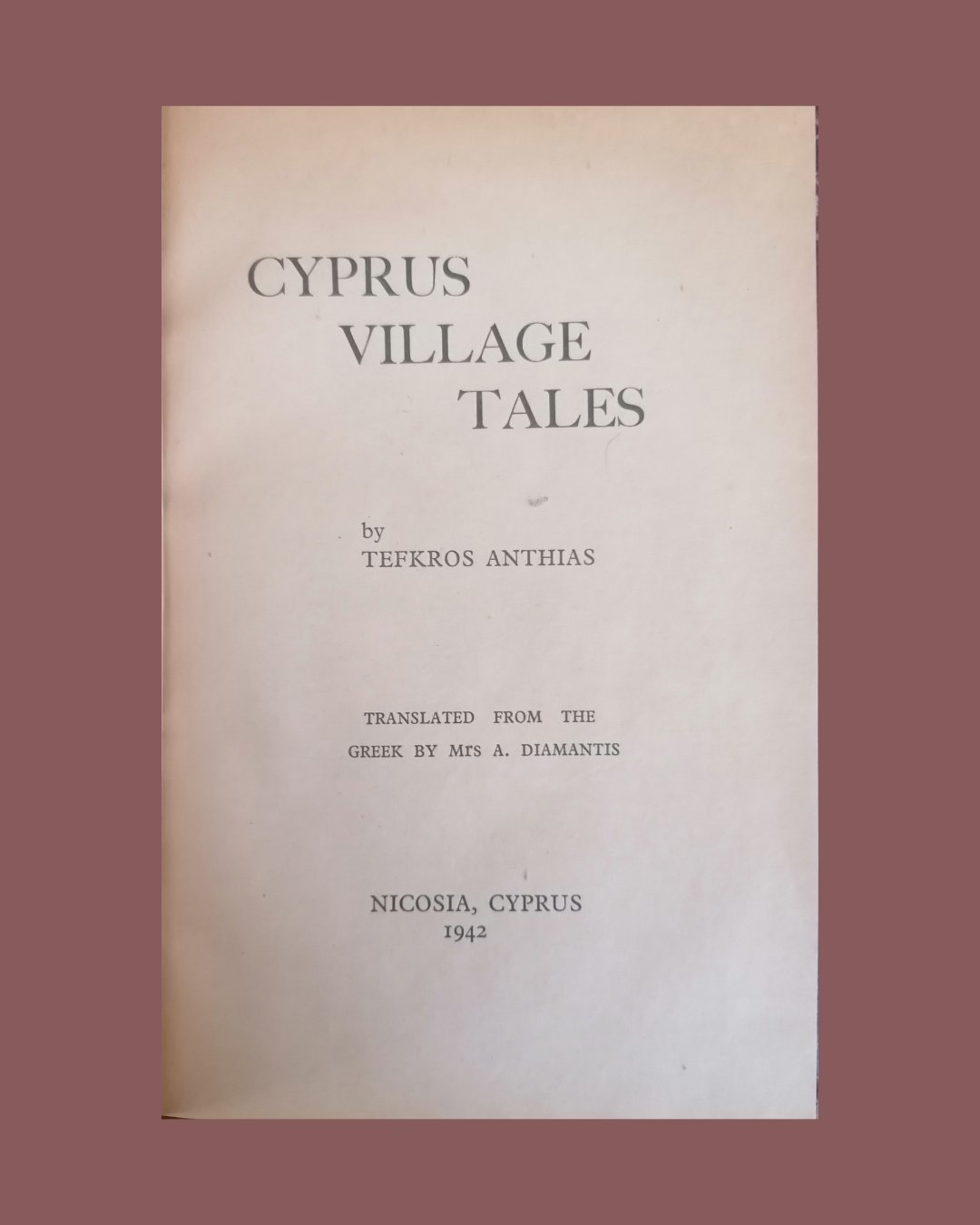Tefkros Anthias (1903-1968), literary pseudonym of Andreas Pavlos, was born in Kontea, Cyprus. He is considered one of the most important Cypriot literary voices. A poet, playwright, journalist and teacher, Anthias’s work reflects his deep political convictions and his empathy for ordinary lives shaped by poverty, hardship and quiet dignity.
In his early years, his writing was marked by sentimentality and irony. Over time, it evolved into a more spontaneous and subjective voice. Anthias’s goal was not simply artistic expression but social justice. His work aimed to serve humanity, expose inequality and celebrate his beloved homeland.
Published in the mid-20th century, Cyprus Village Stories is a short but rich collection of short stories that captures the rhythms of village life through character-driven vignettes. Some nearly plotless, others ending in abrupt loss or quiet revelation. Rather than romanticizing village life, Anthias presents it as it was: a world shaped by superstition, hunger, cruelty, resilience and moments of unexpected kindness. His literary eye is not sentimental; it’s tender. The village here is not a nostalgic symbol, but a living, breathing place.
The language of the stories is rooted in the Greek Cypriot dialect, adding warmth and authenticity. At times, the phrasing feels as if it was lifted directly from the mouth of an old woman sitting outside her stone house, telling a story between sips of coffee. The humour is dry, sometimes sharp. The endings aren’t always neat. But there’s a familiarity in the tone, a sense that these voices belong to people we know or grew up with, even if we’ve never met them.
“Whose fault is it that Pericles tou Tofallou did not become a priest? Certainly not his own. He has known the twelve Gospels by heart and even backwards ever since he was twelve.”
“May your eyes drop out if you cast the evil eye on my mare. I bought her for fifteen pounds.”
These short stories carry more than just plot. They hold customs, morals, superstitions, and the deep-rooted sentiments of village life. In one tale, the folkloric figure of the Kallikantzaros a mischievous goblin said to rise from the underworld during the twelve days of Christmas, makes an unexpected appearance. The villagers speak of haunted houses and strange disturbances, but the story gradually reveals something earthlier: a young girl has eloped in the night and the commotion is quietly blamed on the kallikantzaroi.
“[…] before day-break someone knocked at the door—it was Nicolis o Mouzouros—I opened and learnt from him that my pearl of a daughter, my Maritzou, had run away at midnight with his son, to get married at Larnaca.
Was it he who was the kallikantzaros? He can have my blessing, since I shall not have the same palpitations of the heart next year at the same season. It's a lucky thing I haven't another Maritzou.”
In Anthias’s hands, such superstition-filled tales reveal deeper beliefs and fears but, they also serve a practical social purpose: providing a way to explain or disguise events that might otherwise bring shame or stir gossip.
To read Cyprus Village Stories is to spend time in a slower, quieter Cyprus. It is to recognize how much was once held in common: language, suffering, superstition, land. And how much of that can so easily disappear. Within the broader context of Cypriot literature, Anthias's work stands as an important contribution to the documentation of rural experience. The book serves both literary and anthropological functions, offering future generations insight into a Cyprus that exists increasingly only in memory.
You can find this book, and many more, in the Research Center of the CVAR.
The 'Book Of The Month' series is made possible with the support of The Hellenic Initiative Canada.







